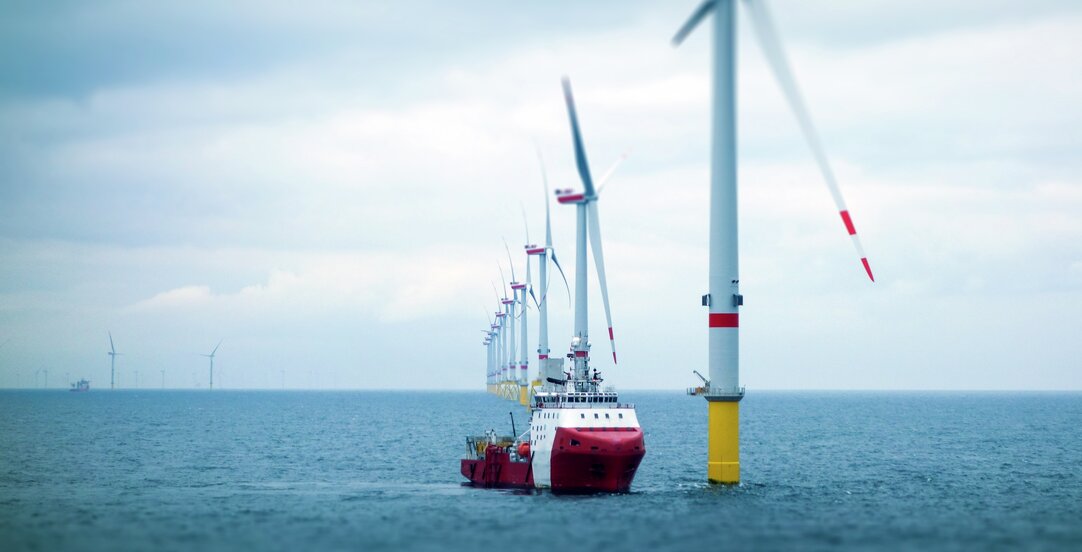BIMCO ASVTIME

BIMCO has today expanded their suite of offshore contracts by launching the new standard time charter for accommodation support vessels. Wikborg Rein participated in BIMCO's drafting committee for the form and set out an overview of its key features below.
Reading time 6 minutes
The ASVTIME is intended for use in both the renewables and oil and gas sectors of the offshore industry. Within the rapidly developing offshore wind industry the form is a useful basis for the chartering of walk-to-work vessel (WTWs) and service operation vessels (SOVs) – in particular as the offshore wind farms move further offshore. The form is based on SUPPLYTIME (the longstanding industry standard time charter for offshore service vessels), but incorporates several features from the WINDTIME (a form developed for crew transfer vessels in the offshore wind industry). The objective has been to develop a new form that builds on well-established industry precedents, but with tailor made features for vessels which primary function is to provide accommodation for personnel performing offshore installation, operation and maintenance work. BIMCO's drafting committee consisted of members from Deme, Eni, Floatel International, Hagland Shipbrokers, Siemens Gamesa, Wagenborg, Wikborg Rein and Ørsted.
"BIMCO has, since long, provided the offshore oil and gas and renewables sectors with standard contracts covering a wide range of offshore-related activities. ASVTIME now offers a tailormade form for the use of specially equipped accommodation support vessels. By involving industry experts in the development of the new form we have ensured that it is a practical and clearly written agreement which fairly represents the interests of both parties," says Christian Hoppe of BIMCO.
Services
In addition to the general description of the chartered vessel, it will be no surprise that ASVTIME contemplates a detailed specification of the accommodation, recreational facilities, office space, workshops and other areas that are available for the charterer's use, as well as the catering to be provided to the charterer's personnel. The form also contemplates a detailed description and limitation of the number of charterer's personnel on board.
Vessels providing accommodation services may also perform ancillary functions that are very important for the charterer's use of the vessel. ASVTIME therefore include provisions regarding optional equipment that may be available on the vessel, including walk-to-work gangways, cranes, offshore bunkering system for charterer's crew transfer vessels and daughter crafts provided by the owners. The operational requirements for such optional equipment will need to be specified, as well as the environmental limits within which it should be able to work. This equipment would generally not be available on a 24-hour basis, and the number of operational hours per day therefore also need to be specified. Since "parallel operations" of the optional equipment may require particular planning, organisation and use of the same specialised crew, it needs to be specified in the form if and when such parallel operations may be required by the charterers.
Off-hire and reduction of hire
The new form offers a traditional off-hire regulation for situations where the vessel is prevented from working during which the charterers payment obligation is suspended. In case of breakdown or unavailability of any of the optional equipment, the off-hire regulation may however not be satisfactory. From the owner's perspective the vessel is still providing the key vessel- and accommodation functions and they should therefore receive remuneration for same. From the charterer's perspective they may face issues due to the unavailability of the optional equipment, but may not be able to substantiate that the vessel is prevented from working or that there is a loss of time resulting in a corresponding off-hire period.
ASVTIME seeks to resolve this challenge by introducing a separate regime where the parties when entering into the contract can specify a percentage by which the hire may be reduced in case of unavailability of the optional equipment. The regime is however not mandatory. It provides that the charterers may request the continued performance of the vessel without the optional equipment at the reduced rate. If the owners consent the reduction of hire applies, but if the consent is not forthcoming the charterers would need to rely on the general off-hire regime to the extent applicable.
Extended offshore operations and offshore bunkering
Another typical aspect with vessels providing accommodation services is that they may remain at the area of operation for extended periods of time, and not have regular port calls such as other offshore service vessels. Issues that arise in relation to such extended offshore operations are addressed in a separate clause dividing the responsibilities for crew change, delivery of fuel, stores and other provisions, as well as vessel surveys or inspections that cannot be undertaken offshore. This provision is based on the special annex to SUPPLYTIME that has recently been developed by BIMCO. Given that the provisions in this annex are likely to be very relevant for these type of vessels it was decided to include them in the ASVTIME as such.
The form also includes provisions for the use of an offshore bunkering system on the vessel for bunkering of crew transfer vessels provided by the charterers, thereby seeking to provide a contractual framework for a practice which is common in the offshore wind industry.
Other key features
There are also several other key features with ASVTIME that should be noted, including:
- Delayed delivery is addressed in a similar way as under WINDTIME. In addition to the right to cancel the charter, the parties need to specify if the charterers would (i) be precluded from claiming damages, (ii) be able claim damages based on the applicable background law or (iii) be allowed specified liquidated damages.
- Charter period extension to complete the immediate task undertaken is adjusted for the contemplated scope of use of the form.
- Fuel is traditionally provided by the charterers under a time charter, but ASVTIME includes the ability for this to be provided by the owners and reimbursed by the charterers to reflect a common practice in the offshore wind industry.
- Maintenance allowance amounts to 24 hours per month on a cumulative basis. During such periods the vessel will remain on-hire whilst performing maintenance, dry-docking, statutory or mandatory surveys or inspections. However, compared to SUPPLYTIME the reference to "repair" is removed in order to avoid that maintenance allowance is used for repairs of damages and not preventive repairs only. Surveys are furthermore only included to the extent they are "statutory or mandatory".
- Liabilities and indemnities follow the typical structure in offshore contracts with a knock-for-knock liability regime for damage to personnel and property, the owner only being responsible for pollution emanating from the vessel and mutual exclusion of special, indirect and consequential losses. Similar to WINDTIME there is also an ability to specify a cap on the parties' contractual liability, but there is no default size of the cap as it was considered more appropriate for the parties to decide this on a case-by-case basis rather than BIMCO making a generic suggestion. The insurance obligations have been made mutual between the parties and the annex for insurances have also been updated to reflect industry practice for these type of vessels. We consider it to be a particularly positive development that yet another (of very few) standard contracts for vessels in the offshore wind industry includes knock-for-knock as the applicable liability model.
- Certain adjustments linked to the key accommodation service are also made in the clauses for infectious or contagious diseases, war risk and ice clauses. The adjustments are made to reflect that the vessels will typically not carry any substantial cargo, but rather have a large number of people on-board.
Summary
Although the SUPPLYTIME is intended for offshore support vessels, it has in practice also been used with bespoke adjustments for accommodation service vessel in the offshore oil and gas industry for decades. By developing a specialised form for these type of units, BIMCO has provided yet another useful standardisation for the benefit of industry participants. Although the market for these types of units are relatively small, the form will hopefully be of particular use for vessels in the offshore wind industry as it continues to develop. In addition, the form should also be useful basis for accommodation and service vessels in other ocean industries.
Wikborg Rein is currently conducting one-to-one workshops with industry participants who would like a more detailed presentation of the form. Please do not hesitate to contact us should this be of interest.

